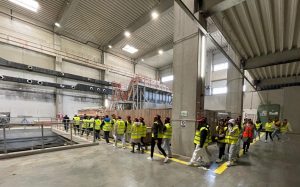True People Analysis: The success rate of AI in recruitment exceeds 80%. Traditional job platforms, continuously declining in efficiency

The success rate of AI-based tools in finding suitable candidates can reach 80%-100% in the hands of an experienced recruiter, according to data from True People, a technology-enabled headhunting company.
At the same time, the performance of traditional job platforms and application tracking systems in finding candidates is continuously declining.
“Technology has become an essential tool in the recruitment process and is helping organizations manage high volumes of applications and identify top talent more efficiently. In addition, thanks to highly sophisticated tools based on artificial intelligence, the success rate in recruitment can even reach 100%, if used by an experienced recruiter. But recruitment technology is no substitute for human judgment and expertise, nor for the attractiveness of the role, company and benefits package, brand, and candidate interview experience. The final decision is up to the recruiter or the manager,” stated Elena Georgescu, founder, and CEO of True People.
As technology has advanced and the global workforce has become more competitive, the demand for recruiting technology has accelerated. Companies in the IT, retail, medical and pharmaceutical, and financial industries were early adopters of technology in recruitment processes, given the highly competitive nature of these fields.
“As recruitment technology continues to evolve and become more complex, more and more industries will be willing to adopt technology to remain competitive in the talent recruitment market. With the popularization of the use of artificial intelligence and the validation of remote or hybrid working, it will continue to play a significant role in HR in the future, enabling more efficient HR operations and better experiences for employees. In addition, these systems can help operate more cost-effectively, leading to cost savings and better business results. In order to maintain their competitive advantage, companies should be prepared to budget their technology component year by year, correctly estimating the short-term and long-term impact of its use, without becoming an end in itself”, added Elena Georgescu.
Technology has transformed the world of HR by automating processes, and improving data analysis, which provides important information in HR decisions, but also by improving communication between employees and employers.
In addition to AI technologies used in HR for tasks such as sourcing, CV screening, chatbot communication with candidates, and even employee mood analysis, there is virtual and augmented reality AR/VR. These technologies can be used in HR for onboarding new hires and virtual training or coaching, as well as creating engaging recruiting experiences.
According to True People, the use of technology in employee recruitment and onboarding processes will continue to trend upward in 2023, along with automation and data analytics. At the same time, to keep up with technological innovations, it will be necessary to improve and retrain employees. However, companies are placing increasing emphasis on employee well-being and mental health and their work-life balance. Also, diversity, equity, and inclusion in the workplace are gaining momentum.













